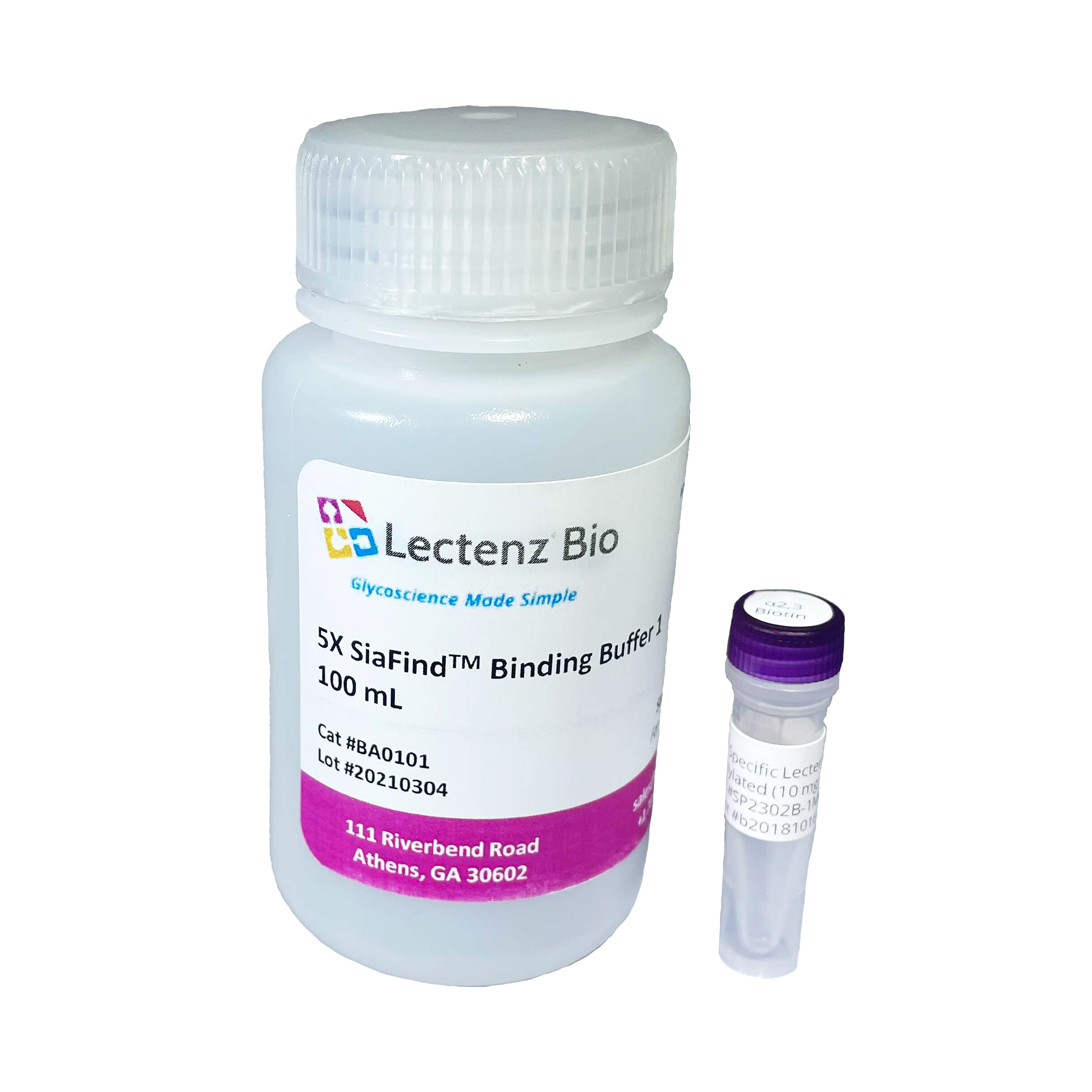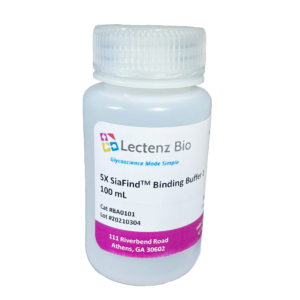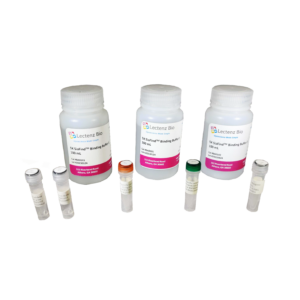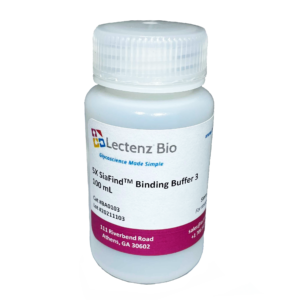SiaFind Alpha 2,3-Specific Lectenz® Kit
Price range: $395.00 through $530.00
| Product | SKU | MG | Price |
|---|---|---|---|
| SiaFind™ α2,3-Specific Lectenz® Kit | SK2301 | 1 | $395 |
| SiaFind™ α2,3-Specific Lectenz® Biotinylated Kit | SK2301B | 1 | $450 |
| SiaFind™ α2,3-Specific Lectenz® SureLight® 488 (2 week lead time) | SK2301F | 1 | $530 |
| Custom Order | Inquire |
Lectenz® are a novel class of lectin-like, enzyme-derived glycan-targeting affinity reagents engineered by computationally-guided directed evolution. The reagents are highly purified recombinant proteins, each designed to bind a specific glycan structure, and have advantages over naturally occurring lectins in rapid detection and enrichment of glycoconjugates.
SiaFind™ α2,3-Specific Lectenz® Kits (Cat #SK2301, SK2301B, and SK2301F) contain a sialic acid affinity reagent for the detection, separation, or enrichment of sialoglycans terminating in Neu5Acα2,3Gal commonly found in glycoconjugates (glycoproteins, glycolipids, and oligo- or polysaccharides). It has high affinity and specificity towards α2,3 linked sialic acids on glycans. However, it does not bind effectively to branched sialylated epitopes such as sialyl Lewis A/X. Each kit also includes a 5X binding buffer to ensure maximum reagent specificity and ease of use.
Supplementary Information
Each SiaFind™ Lectenz® has a molecular mass of about 77 kD and works as a monomer without bivalent metal ions. They are 6xHis-tagged proteins and an anti-polyhistidine antibody, or in the case of the biotinylated version, a streptavidin conjugate can be used for detection. The fluorescent version can be directly detected.
Form and Storage
The SiaFind™ native and biotinylated Lectenz® are supplied in a storage buffer (50 mM EPPS, 100 mM NaCl, pH 7.5), and lyophilized products should be reconstituted in 100 μL molecular grade water to yield a 10 mg/mL solution. Concentration is determined by spectrophotometry using E1% 12.7.
The SiaFind™ Lectenz® SureLight® 488 reagent is supplied as a 10 mg/mL solution in a storage buffer (50 mM EPPS, 100 mM NaCl, pH 7.5). Concentration is determined by spectrophotometry using E1% 12.7. The actual absorbance at 280 nm is calculated by measuring the observed absorbance at 280 nm and subtracting the absorbance at 493 nm multiplied by a correction factor of 0.11; A280actual = A280observed – (A493 x 0.11). Store in dark tubes, and perform experiments protected from light.
Once reconstituted, store at 4°C for up to 5 days or -20°C for up to 6 months. Aliquoting is recommended to avoid repeated freeze-thaw cycles.
All 5X buffers should be diluted to 1X with ultrapure water. For instance, to make 250 mL, add 50 mL of any 5X buffer to 200 mL water and mix by inversion. All buffers may be stored at 4 to 25°C.




